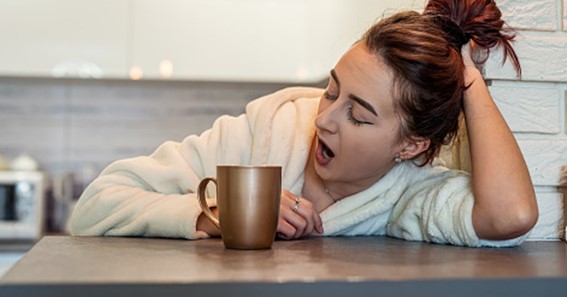Sugar, a common culprit in coffee, has several negative effects on our bodies, including causing sleeplessness. To avoid these effects, substitute sugar substitutes for coffee. However, it is still important to note that caffeine is a stimulant and, as such, can cause a temporary energy spike in the body. Instead, try a sugar-free beverage with caffeine alternatives. Caffeine can also interfere with our sleep by disrupting the balance of adenosine in the brain.
Sugar Is the Culprit
If you’ve ever wondered why you get sleepy after drinking coffee, then the answer might be sugar. Sugar in coffee has the effect of making you feel sleepy because it speeds up your body’s metabolism and causes a “sugar crash,” which leaves you with less energy than when you started. To avoid this sugar crash, make sure to drink coffee with milk or without creamers.
While caffeine doesn’t directly influence the production of adenosine, it does delay its effects. It also triggers a sugar crash, since the body processes sugar much faster than coffee does. This crash will leave you without energy for hours. As a result, it’s a good idea to save milk for nighttime. And don’t forget to drink plenty of water before bedtime!
click here – Understanding Personal Injury
Coffee Is Diuretic
Despite its many health benefits, coffee can make you sleepy. Caffeine makes you urinate more often and is a diuretic. This dehydration causes your body to lose fluid, and dehydration can make you feel fatigued. It also causes your blood vessels to narrow and reduce your body’s activity. So while coffee can help you feel more alert during the day, it shouldn’t be your only choice.
This dehydration causes a crash and can lead to fatigue and a decreased sense of alertness. But drinking too much coffee can lead to dehydration, which in turn causes sleepiness. Drinking too much coffee can also make you feel thirsty, which is not healthy either. It can also lead to dehydration, which can lead to fatigue and low mood. On the other hand, a moderate coffee consumption can make you feel energized and alert.
Your Coffee Might Contain Mold

You might be surprised to learn that your coffee might contain mold. While some people cannot detect the presence of the mold spores, others do. Some of the symptoms of a coffee mold infestation include coughing, congestion, watery eyes, and gastrointestinal issues. Toxins are a real problem in food and can affect anyone, no matter what their age or health status is. Toxic mold spores can cause health problems and even cause cancer.
There is a high risk of mold growth in coffee when it is processed naturally. Natural processing of coffee does not remove the outer pulp layer of the cherry and instead allows it to dry. Because of this, green coffee beans spend more time wrapped around the pulpy layer. During shipping, they are packed in burlap sacks made of jute, which contains cellulose, one of the most harmful types of mold. Even if the mold isn’t harmful, drinking coffee that contains mold could cause symptoms such as headaches, nausea, stomach cramps, diarrhea, and vomiting.
click here – Everything You Need to Know About Gynecological Exam Chair
Caffeine Withdrawal Symptoms
People consume caffeine to combat fatigue. Without the external energy boost caffeine gives, they may feel more tired. However, if you stop drinking caffeine abruptly, you may feel some withdrawal symptoms as early as 12 to 24 hours after stopping. Other symptoms may occur later, but they usually subside. Regardless of how long the withdrawal symptoms last, you can self-care for the most part.
People who stop drinking caffeine often report experiencing headaches, insomnia, and other physical and psychological symptoms. They may experience drowsiness, irritability, and difficulty concentrating. In some cases, people experience flu-like symptoms. The withdrawal process can last two to nine days, depending on the person’s tolerance. Caffeine withdrawal symptoms can last up to two months if a person is an avid coffee drinker.
One major caffeine withdrawal symptoms is insomnia and reduction in the melatonin hormone in the body. Reduction in the melatonin hormone results in irregular circadian rhythm. And to overcome this one needs to take melatonin supplements on the advice of their doctor. The dosage shall be prescribed by the physician and excess consumption can result in a melatonin overdose. Also, you must always look for the melatonin side effects in elderly as they are mostly recorded to be suffering from overdose.
The Dairy Is Affecting You
Dairy is a rich source of tryptophan, an amino acid that is associated with helping you sleep. While this is a great way to relax in the evening, however, it can cause problems in the morning coffee. It’s important to keep in mind that even though tryptophan is a contributor to sleepiness, milk contains a tiny amount of it. So the possibility of having a bit of milk in the coffee leaving you exhausted is small.
If, however, you decide to replace the dairy that you drink by drinking a plant-based substitute and notice you’re better alert and focused, this could be an indication that you should cut out dairy. A.M. consumption.
How To Minimize the Side Effects of Caffeine
If you’re looking to eliminate the negative side effects, but still drink the coffee, here are some strategies that will help you minimize the negative effects that come with the consumption of caffeine:
Avoid drinks that are sugary: The sugars in your beverages could cause a rise in blood glucose levels and cause the crash of sugar later. You can try reducing the sweetness of your caffeinated drinks in order to retain the caffeine but avoid the crash.
Drink plenty of water: Because caffeine is a diuretic, it’s vital to drink enough water when drinking caffeinated beverages. It is recommended to drink at minimum 8 eight ounces of fluids every 2 hours or 16 ounces of water every 4 hours.
Change to decaf during the afternoon: Since coffee is able to stay on your shelves for as long as 10-hours and this 4 p.m. energy boost may be causing you to stay awake until early in the morning. Consider switching to decaf during the afternoon to avoid a sleepless night of trying to count sheep

